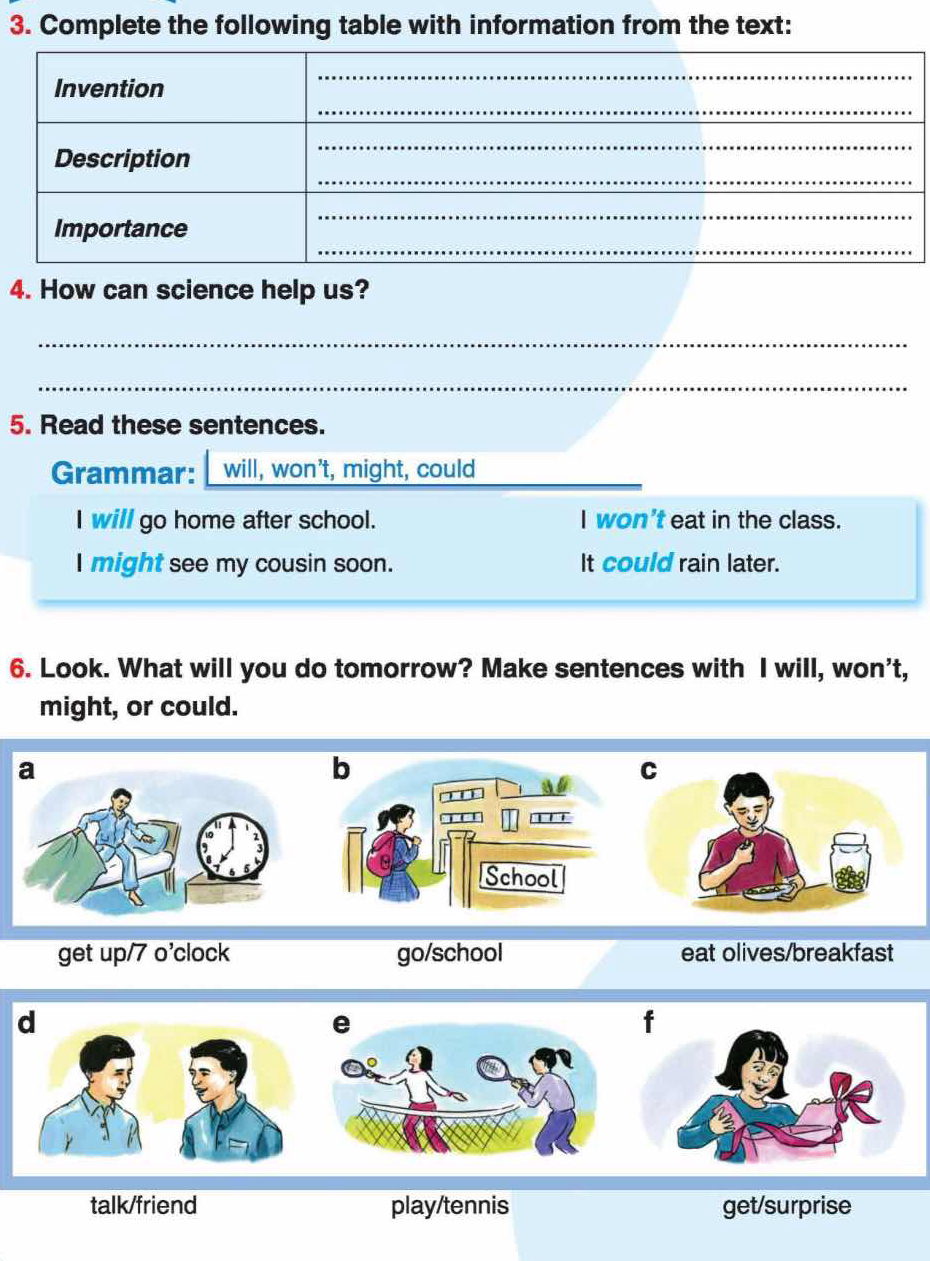Complete the table, answer the question, and make sentences using the images.

Understand the Problem
The image contains exercises from an English lesson. Question 3 asks to complete a table about an invention, its description, and its importance, using information from a text. Question 4 asks how science can help us. Question 6 asks to form sentences with 'I will, won't, might, or could' based on the images provided, talking about future actions.
Answer
Fill the table with text info. Use images as prompts: a) I will get up at 7. b) I will go to school. c) I won't eat olives. d) I might talk to my friend. e) I might play tennis. f) I could get a surprise.
Complete the table by reading the specific text or source material provided to fill in relevant details about an invention's description and importance. For making sentences using 'will,' 'won't,' 'might,' or 'could,' use the images as prompts: a) I will get up at 7 o'clock. b) I will go to school. c) I won't eat olives for breakfast. d) I might talk to a friend. e) I might play tennis. f) I could get a surprise.
Answer for screen readers
Complete the table by reading the specific text or source material provided to fill in relevant details about an invention's description and importance. For making sentences using 'will,' 'won't,' 'might,' or 'could,' use the images as prompts: a) I will get up at 7 o'clock. b) I will go to school. c) I won't eat olives for breakfast. d) I might talk to a friend. e) I might play tennis. f) I could get a surprise.
More Information
Use 'will' for definite actions, 'won't' for things you won't do, and 'might' or 'could' for possibilities.
Tips
Make sure to align your sentences with the images depicted, using modal verbs correctly to express certainty or possibility.
AI-generated content may contain errors. Please verify critical information